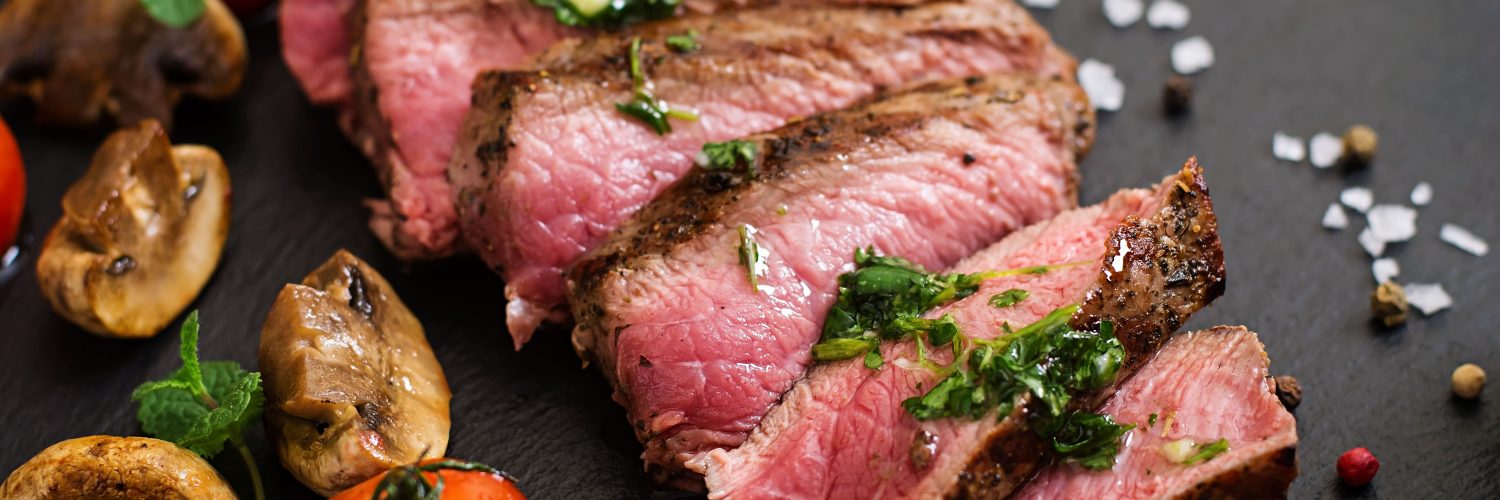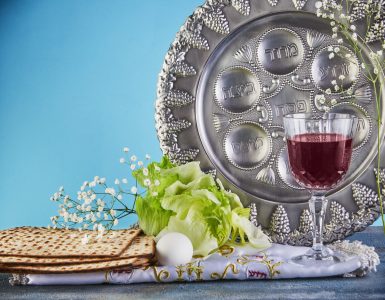Excessive consumption of salt is considered universally detrimental to health and significantly increases the risk of experiencing a stroke or myocardial infarction. Due to this concern, medical professionals generally recommend that healthy individuals should limit their sodium intake to 2300 mg (roughly equivalent to a teaspoon of salt).[1] However, those who have hypertension, diabetes, or chronic kidney disease are cautioned to restrict their daily intake to no more than 1500 mg.[2]
In reality, it is challenging for somebody living in today’s society to avoid surpassing this limit. A substantial portion of the modern diet consists of heavily processed foods that contain unnaturally high amounts of sodium. Therefore, the average adult tends to consume as much as 4000 mg of sodium daily.
Nonetheless, as noted earlier, for some people, excessive sodium consumption can be life-threatening for certain individuals. The initial step involves steering clear of highly processed foods and eliminating added salt from their diet. However, this becomes a complex issue when it comes to kosher meat and poultry, as they often retain significant amounts of salt from the Kashering process, even if it is done at home.
Before exploring practical solutions for addressing this matter, it is worth taking a moment to delve into the issue of whether it is Halachically permissible to use sugar instead of salt in the Kashering process. This topic has sparked intense debates among the great Poskim over the past few centuries.
Rabbi Yaakov Yisrael Chagiz, zt”l (1620-1674), was one of the great Chachamim of Yerushalayim some three hundred and fifty years ago.[3] His main Halachic work was titled Halachos Ketanos. In the first volume (218), he is asked briefly: “Is it permissible to salt a Korban with sugar?“
The Torah commands us to salt all the Korbanos, “With all your offerings you shall offer salt” (Vayikra 2:13). This is codified by the Rambam (Hilchos Isurei Mizbe’ach 5:11). On what grounds should sugar be considered an acceptable substitute for salt? R’ Chagiz explains:
Sugar is absolutely [the same as] salt since it preserves things for a long time. And do not be shocked by the fact that sugar is sweet since this is evident in all things. You find sweet and sour pomegranates, lemons, and cherries…; likewise, there are sweet and salty salts. The bottom line is that a preservative is called salt, the covenant of the world and its existence. The chemists say that everything contains salt and that the sugar cane brought from Egypt is salty near its roots and tip, while the middle is wholesome. They similarly say that the snake is venomous at its head and tail while the body is medicinally beneficial and an important food. The same goes for the Kishu’in and Delu’im (squash and gourds).”
In other words, there are several reasons to consider sugar a type of salt. First, because sugar cane has a salty component, and second (and primarily) because sugar has the ability “to preserve things for a long time” in the same way salt does.
These point to the fact that sugar is [considered] a sweet species of salt. Just as pomegranates come in sweet and sour varieties, so too does salt come in sweet and salty varieties.
R’ Chagiz continues:
And if you will [ask], how can they possibly salt the offering with sugar when the Torah states “For all sourdough and honey you shall not offer”? To what does this refer? Surely this comes into question when there is no salt; does the positive commandment to “salt an offering” override the negative commandment “honey you shall not offer” (see Vol. 2, 248)? [This indicates that although sugar preserves, its use is prohibited because it is classified within the category of honey.] This is a nonsensical question, because vinegar also preserves, since all bitter things contain a high concentration of salt, but it is not salt. The proof is that “it becomes infested with maggots”. Sugar, however, is itself salt. [Likewise, although honey has a high sugar content, it is not exclusively sugar.] (This is of practical significance in our times as well if somebody mistakenly salted meat in sugar and cooked it in that state. One can lean towards leniency when, for instance, there is [additional food mass in the pot] 60 times worth the piece of meat following the Shulchan Aruch’s opinion in Y.D. 69:11.)
Approximately 150 years later, R’ Daniel Tirani of Italy was compiling his guide to daily Halacha, the “Ikrei haDa”t”. In writing this guide, he drew on dozens of Halachic works. When dealing with the laws of cooking on Shabbos (O.C. 14), he makes the following comment:
The experts in sugar production informed us that they cook it and boil it up while mixed with lime water many times over… And likewise, their early authors would refer to sugar as Indian salt… From here, we can also support the ruling of the Leket Halachos who ruled that concerning salting the Korbanos, sugar is treated as though it is salt (see there). Not for nothing is it called Indian salt since it possesses the same ability to draw out moisture. It therefore seems, in my humble opinion, that in a place where there is no salt, one should have no qualms about salting with sugar. Perhaps because this is so obvious, the Shulchan Aruch did not discuss it at the end of Siman 69.
In short, in the opinion of these two prominent Acharonim, sugar has the same status as salt. While the Halachos Ketanos was more reserved, only permitting meat that had been mistakenly “salted” with sugar if it was outnumbered by other foods at a ratio of 60:1, the Ikrei haDa”t went further and permitted “salting” meat with sugar when no salt is available.
How these Acharonim knew that sugar is a food preservative is unclear from their writing. Rav Ovadia Yosef zt”l (Yabia Omer, 4, Y.D., 2) suggests that they inferred this from the Gemara’s account of Herod preserving a corpse in honey for seven years (Bava Basra 3b). Perhaps they understood that honey’s high sugar content is responsible for its preservative properties. [However, Rav Ovadia argues that this preservative property must be incomparable to that of salt given that it is a Mitzva to salt all Korbanos yet it is forbidden to add honey to any Korban.]
He further cites the Avnei Nezer (O.C. 532) who discusses the status of flour stored in sacks that had previously contained sugar regarding Chametz. He initially suggests that sugar is comparable to salt (Halacha considers salt an agent that speeds up the process of a dough becoming Chametz). He supports this with an anecdote from “Rabbi Elazar the Av Beis Din of his town, who related that his father-in-law the Gaon of Lisa zt”l (the great Chavos Da’as) had salted meat with sugar.” He adds that the Minchas Chinuch also cites the Halachos Ketanos, and that when he was younger he heard that medical books classify sugar as a salt. However, the Avnei Nezer counters this initial suggestion with scientific evidence obtained from a particular doctor, who insisted that “sugar is absolutely not a salt”. Ultimately, the Avnei Nezer leaves the question unresolved.
The majority of Poskim strongly disagreed with the suggestion of the Halachos Ketanos. The Divrei Chaim (1, O.C, 25) argues that sugar is certainly not considered salt when it comes to salting meat, for it cannot induce heat and bubbling, the very capacity required to draw blood out of meat.
R’ Chaim Falagi zt”l[4] (Ruach Chaim Y.D., 69) cites several Chachamim who disagreed with the ruling of the Halachos Ketanos. He ultimately concludes that anyone who rules that it is permissible to salt meat with sugar is misleading the masses. (He even suggests that the Ikrei HaDa”t specifically referred to a particular species of sugarcane used at that time that was both sweet and salty due to its high salt content. He therefore cautions that even if one was to use this sugar to salt meat, one would have to use extremely large quantities to ensure that sufficient salt is present in the mixture.) Likewise, the Ben Ish Chai rejects this position (Ben Ish Chai Taharos 22; Rav Pa’alim 2 Y.D. 4).
Among the Ashkenazic Poskim, the Arugos haBosem[5] (Y.D. 69:17) states that one should absolutely not rely on this leniency and that it is a Mitzva to erase this ruling from the Ikrei haDa”t. The Yad Yehuda[6] (Melicha 69:97) uses even sharper terminology, while the Tzitz Eliezer (9:35) suggests that this ruling was added into the work of the Ikrei haDa”t at a later point by somebody other than the author. (In other words, the Ikrei haDa”t only classified sugar as salt in the context of Korbanos.)
The bottom line is that under no circumstance may one Kasher meat by soaking it in sugar instead of salt.
What can people with sodium sensitivity do? The Shemiras Shabbos Kehilchasa (40:100) offers the following advice:
Though our Minhag is to leave the meat [soaking] in salt for a full hour, for an unwell person who is not permitted to eat salty foods and for whom it is difficult to eat roasted meat, it suffices to leave it in salt for 24 minutes or at least 23 minutes. It is also permissible to salt meat for an unwell person using dietetic sodium-free salt. If the doctor’s instructions require that the meat is not salted at all, then, if there are pressing circumstances, one may be lenient and permit the meat through Chalita – scalding it. In other words, after rinsing it in water, one places it into boiling water sitting on the fire.
If one wishes to utilize the leniency of soaking the meat in salt for a shorter period, the Chazon Ish rules that even 18 minutes suffices.
The dietetic salt to which the Shemiras Shabbos Kehilchasa referred is ammonium chloride or sulfur chloride salts as opposed to standard kosher salt which is sodium chloride. These salts share kosher salt’s ability to draw blood out of meat and are therefore theoretically superior to sugar. The sources of the Shemiras Shabbos Kehilchasa are two articles published in the periodical “No’am” (Vol. 10, p180; Vol. 16, Kuntres haRefua, p50). It is important to note that the articles stipulate that when salting with ammonium chloride, one must use much larger quantities than when salting with kosher salt.
In Nishmas Avraham (Y.D. 69), R’ Professor Avraham Sofer cautions:
I must emphasize that the use of these two salts is intended only for patients on a strict low-salt diet, and only with the knowledge and constant supervision of the attending physician (including appropriate blood tests), because without this there may be serious side effects.
We should add that we have heard from doctors that for these patients it is sufficient to boil the (salted) meat in water for 10 minutes, and then pour out the water. This draws out a significant proportion of the salt. Of course, this also requires the approval of the patient’s physician.
[1] See https://www.dietaryguidelines.gov/resources/2020-2025-dietary-guidelines-online-materials
[2] See https://www.nhlbi.nih.gov/education/dash-eating-plan
[3] He founded the famous Beis Yaakov Yeshiva, from which Torah giants of world renown, including the Pri Chadash would emerge. He is particularly well known for his uncompromising war against the false Messiah Shabtai Tzvi. He merited descendants who were Torah scholars in their own right, such as his son Rabbi Moshe Hagiz (“the Meniach“, who authored Leket haKemach) and his eldest son-in-law Rabbi Moshe ben Habib.
[4] R’ Chaim Falagi zt”l (1787-1868) was a Posek, Parshan, and Mekubal among the great Chachamim of Izmir. He was a prolific author and his works cover a broad range of topics.
[5] R’ Moshe Greenwald zt”l (1853-1910) was one of the great Hungarian Poskim of the late 19th century.
[6] R’ Yehuda Leib Landa zt”l (1823-1900) was the Rav of Sadigura in the Austrian Empire.















Add comment